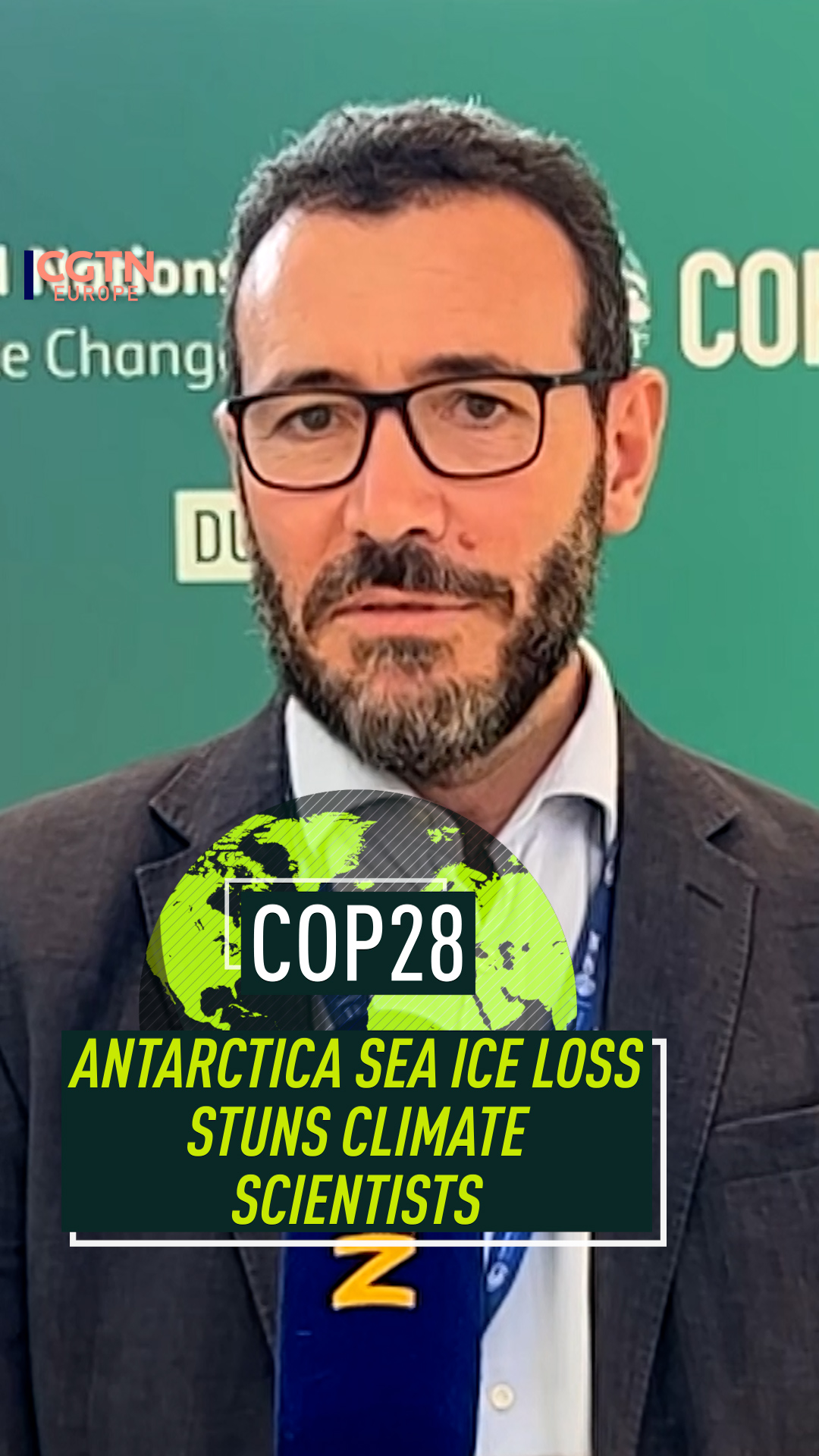00:32

WATCH: Director of the Copernicus Climate Change Service outline his concerns to CGTN Europe
Scientists have been left stunned by the quantity of sea ice loss in Antarctica this year, according to one of the world's leading experts on climate change.
In September it was reported that Antarctica had likely recorded its lowest ever annual maximum amount of sea ice around the continent, by a staggering one million square kilometers.
September is typically the time of year when the continent records its maximum extent of sea ice, which is typically around 18.71m sq km. This year that figure plummeted to 16.9 sq km. Carlo Buontempo, Director of the Copernicus Climate Change Service, told CGTN that scientists were taken aback by the scale of sea ice regression.

Antarctica record low levels of sea ice in September, with scientists shocked by the speed of ice regression./Reuters/Ueslei Marcelino.
Antarctica record low levels of sea ice in September, with scientists shocked by the speed of ice regression./Reuters/Ueslei Marcelino.
"There have been a lot of surprises this year," he said. "When we look at the projections we made 20 years ago, they have been useful because much of what we predicted has happened. That said, there have been some surprises this year which are worth noticing. So we had this massive loss of sea ice in the Antarctica in all of the Southern Ocean.
"We also had this heatwave coming in across the North Atlantic in the ocean and a peak jump in temperature in the North Atlantic."
In March and April this year, scientists also noticed other worrying changes in the oceans. The average sea surface temperatures surpassed the highest levels previously recorded.

UN Secretary-General Antonio Guterres and Chile's President Gabriel Boric recently visited Antarctica to observe the impact of climate change./Via third party.
UN Secretary-General Antonio Guterres and Chile's President Gabriel Boric recently visited Antarctica to observe the impact of climate change./Via third party.
Months later, ocean temperatures showed no signs of cooling and remained at record levels, with global sea surface temperatures measured at 0.99°C (1.78°F) above average in July. Buontempo says scientists are still trying to fully comprehend the causes. "What has happened in all of the global ocean has been very remarkable," he added. "That's taken many of the scientists by surprise.
"This is consistent with what we were expecting from climate change. But the speed of some of these changes have been surprising. And so there is certainly more research to be done to fully understand the reason behind it."
Asked whether the planet is now facing irreversible changes, Buontempo said he's still hopeful that firm and immediate action to reduce greenhouse gas emissions can save earth from disaster.
READ MORE
Gaza reporter: It's more than a job
German businesses to profit from China's visa scheme
Private jet usage criticized at COP28

Warming oceans are good news for surfers but alarming for scientists who have observed record sea surface temperatures./Reuters//Shannon Stapleton
Warming oceans are good news for surfers but alarming for scientists who have observed record sea surface temperatures./Reuters//Shannon Stapleton
He said: "There is a Chinese saying when planting a tree - what is the best time to plant a tree? And the answer is 25 years ago or 20 years ago. And the second question is, when is the next best time to plant a tree? And it's tomorrow.
"I think that's the mindset. Clearly, had we taken action 20 years ago, the decline in the carbon or in greenhouse gases in general, the concentration, we could have been slower, more relaxed than it is now.
"We haven't taken so much action in the last 20 years, which means that if we want to get to net zero, which we know is the way to guarantee a reduction in the impact of climate change, we need to be much steeper now."
Subscribe to Storyboard: A weekly newsletter bringing you the best of CGTN every Friday